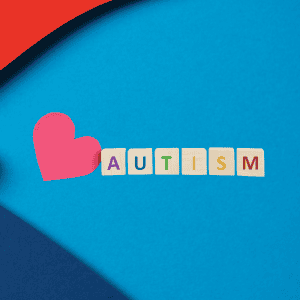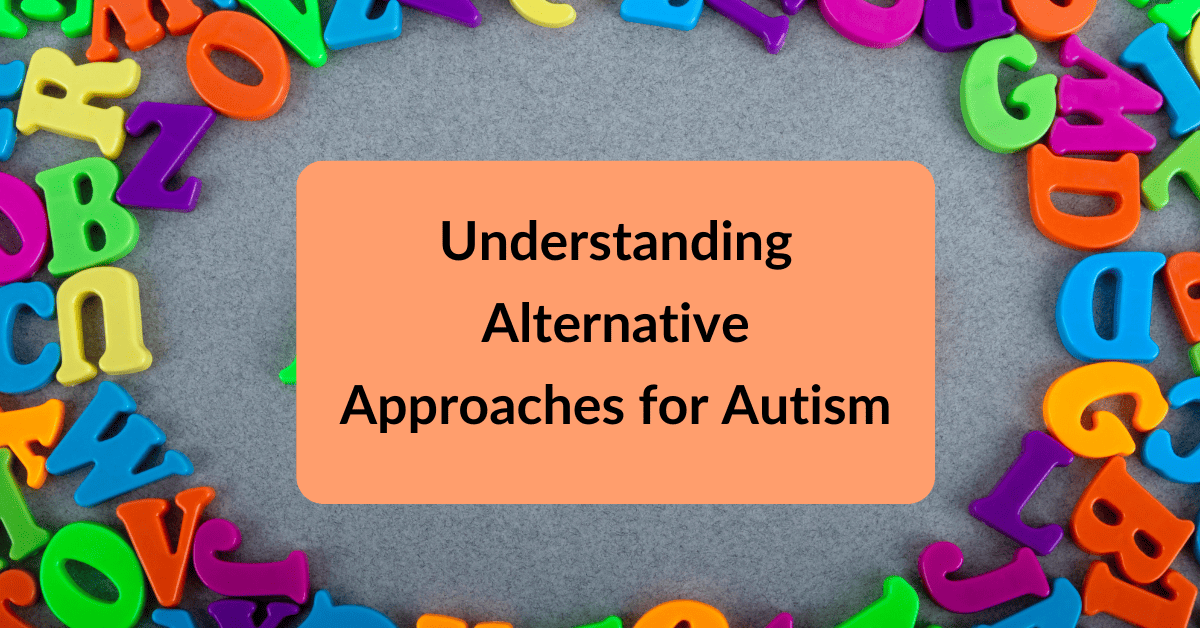Last updated on May 9th, 2024 at 06:47 am
Understand Alternative Approaches for Autism: What Parents Need to Know
Autism Spectrum Disorder (ASD) is a multifaceted neurodevelopmental condition impacting communication, behavior, and social interaction across a spectrum of severity.
As diagnoses of ASD continue to increase, comprehending its diverse manifestations is imperative for caregivers, educators, and medical professionals alike.
This piece endeavors to shed light on both conventional and alternative approaches for Autism, providing valuable perspectives and avenues for those navigating this complex yet hopeful journey.
Defining Autism Spectrum Disorder (ASD)
ASD encompasses a spectrum of conditions marked by difficulties in social interaction, repetitive behaviors, speech, and nonverbal communication.
However, amidst these challenges, individuals with ASD often exhibit unique strengths and distinctions.
Recognizing the intricate nature of ASD is pivotal for devising personalized support and intervention strategies tailored to the specific needs of each individual.
Understand Traditional Approaches to Autism Treatment
Traditional treatment options for ASD are designed to address specific symptoms and often include behavioral therapy, medications, and speech and occupational therapy.
These approaches focus on improving communication skills, reducing problematic behaviors, and enhancing learning and development.
While many have found success with these methods, the diverse nature of ASD means that what works for one individual may not be as effective for another.
Introduction to Alternative Approaches
Increasingly, parents and caregivers are exploring alternative approaches to complement traditional treatments.
These can range from dietary changes and nutritional supplements to detoxification therapies and even cognition therapy.
The goal of these alternative treatments is to offer a more holistic approach and focus on not just the traditional methods but also the external factors that have been researched to contribute to autism symptoms.
While not all approaches have been researched in depth, many families, including my own, report positive changes in their child’s life by using alternative approaches.
Disclosure: There are affiliate links in this post. If you click the link and buy something, I might get a commission at no additional cost to you! This is what keeps this blog running so consider using these links if you decide to try any of my recommendations.
The Importance of Exploring Alternatives
Autism Spectrum Disorder (ASD) is markedly diverse, with each individual exhibiting a unique set of strengths, challenges, and needs.
This diversity necessitates a broad spectrum of treatment strategies.
Recognizing and respecting these differences is crucial in identifying the most effective interventions, whether they be traditional, alternative, or a combination of both.
Understanding Individual Needs and Preferences
Just as the manifestation of ASD symptoms varies, so too do the responses to different therapies and interventions.
Understanding the specific needs, preferences, and reactions of each individual with autism is paramount in crafting a personalized treatment plan that maximizes potential benefits while minimizing any adverse effects.
Potential Benefits of Alternative Approaches
Alternative approaches can offer a variety of benefits that traditional treatments may not fully address.
These can include improvements in general well-being, reduced anxiety and stress, enhanced communication and social skills, and better overall health.
For some, these methods provide a complementary option that fills gaps left by conventional therapies.
Types of Alternative Approaches
Gluten-Free and Casein-Free (GFCF) Diet
 A GFCF diet eliminates all sources of gluten and casein, proteins found in wheat and dairy products, respectively.
A GFCF diet eliminates all sources of gluten and casein, proteins found in wheat and dairy products, respectively.
Some parents and caregivers of children with ASD report improvements in behavior, speech, and social interaction following the adoption of this diet.
Specific Carbohydrate Diet (SCD)
The SCD focuses on removing complex carbohydrates and sugars, aiming to reduce digestive distress and improve symptoms of ASD.
It suggests that gut health significantly influences overall well-being and behavior.
Ketogenic Diet
The ketogenic diet is a high-fat, low-carbohydrate diet that has been suggested to help in managing seizures in some individuals with autism.
Beyond seizure control, some reports suggest improvements in behavior and cognitive functioning.
Nutritional Supplements
Probiotics and Gut Health
 Probiotics are often used to improve gut health, with the understanding that a healthy digestive system can influence brain function and behavior positively.
Probiotics are often used to improve gut health, with the understanding that a healthy digestive system can influence brain function and behavior positively.
This approach is based on the gut-brain axis theory, suggesting that gut health may affect autism symptoms.
Omega-3 Fatty Acids
Omega-3 fatty acids, found in fish oil and certain plant oils, are touted for their potential benefits in improving cognitive function and reducing inflammation, which may be beneficial for individuals with ASD.
Vitamins and Minerals
Supplementing with specific vitamins and minerals, such as Vitamin D, magnesium, and methyl-B12, has been explored for potential benefits in addressing certain symptoms of autism, with mixed but promising results.
Sensory-Based Therapies
Sensory-based therapies focus on helping individuals with ASD manage their unique sensory experiences, which can range from hypersensitivities to under-responsiveness.
These therapies aim to improve the ability to process and respond to sensory information.
Occupational Therapy
Occupational therapy (OT) assists children and adults with ASD in developing the necessary skills for living independently.
OT practitioners work on fine motor skills, life skills, and sensory integration to help individuals better engage with their environment.
Sensory Integration Therapy
Sensory Integration Therapy is designed to help individuals with ASD cope with sensory sensitivities.
Through activities that challenge the sensory system, it aims to improve how the brain processes and responds to sensory information, leading to better overall function.
Music Therapy
Music therapy utilizes music to improve communication, social, and emotional skills.
This therapeutic approach can provide an alternative way for individuals with ASD to express themselves and interact with others.
Behavioral and Developmental Interventions
Applied Behavior Analysis (ABA)
 ABA is a therapy based on the science of learning and behavior.
ABA is a therapy based on the science of learning and behavior.
It helps improve specific behaviors, such as social skills, communication, reading, and adaptability to changes in routine or environment.
Relationship Development Intervention (RDI)
RDI is a family-based, behavioral treatment that focuses on building social and emotional skills.
It aims to strengthen the motivational aspects of experiencing and sharing social connections.
Floortime Approach
The Floortime Approach emphasizes the importance of emotional and relational development.
It involves creating interactive play sessions that help children with ASD connect with others and build communication skills.
Biomedical Treatments
Biomedical treatments for ASD involve medical and dietary interventions to address the biological and physiological aspects of the disorder.
Chelation Therapy
Chelation therapy is used to remove heavy metals from the body.
While controversial and requiring further research, some believe it can alleviate symptoms of ASD in cases where heavy metal toxicity is a concern.
Hyperbaric Oxygen Therapy (HBOT)
HBOT involves breathing pure oxygen in a pressurized room or tube.
Some studies suggest it can improve symptoms of ASD, though more research is needed.
Stem Cell Therapy
Stem cell therapy is an experimental treatment where stem cells are used to treat or prevent a disease or condition.
Its efficacy and safety for ASD are currently under study.
Environmental and Toxin Support
Understanding and addressing environmental triggers can play a role in managing ASD symptoms.
Identifying and understanding potential environmental triggers, such as certain foods, chemicals, or allergens, can help in reducing behaviors or symptoms associated with ASD.
Detoxification Strategies
Detoxification strategies aim to eliminate toxins from the body.
These may include dietary changes, the use of certain supplements, or other methods to support the body’s natural detoxification processes.
Creating a Toxin-Free Living Environment
Creating a toxin-free living environment involves reducing exposure to harmful chemicals and pollutants at home and in daily life, potentially benefiting individuals with ASD.
Critiques and Controversies Surrounding Alternative Treatments
Alternative treatments for autism spectrum disorder (ASD), while diverse and often personalized to fit an individual’s unique needs, are not without their critiques and controversies.
Skepticism arises primarily due to the lack of solid research underpinning many of these interventions.
Getting scientific research, rigorous clinical trials, and peer-reviewed studies all take time and require funding to complete.
Consequently, parents and others supporting autism are forced to make the best judgment on whichever treatment might add value to their child’s quality of life.
It’s also important to note that what works for one individual may not work for another, underscoring the importance of a tailored, closely monitored approach to any alternative treatment plan for ASD.
Additional Resource:
- Check This Out for More Helpful Resources
- How to deal with autism meltdowns in children?
- Natural detox for kids
- Best Foods for Children with Autism





0 Comments